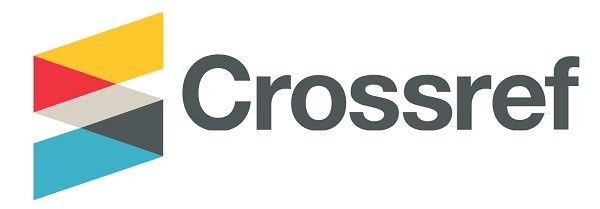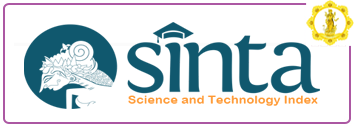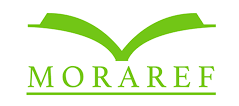OPTIMALISASI AKREDITASI: EFEKTIVITAS SUPERVISI AKADEMIK MELALUI PEMBERDAYAAN GURU DAN PENERAPAN PEMBELAJARAN INOVATIF
DOI:
https://doi.org/10.25078/jpm.v11i01.3725Keywords:
Accreditation Management, Academic Supervision, Teacher Empowerment, Innovative LearningAbstract
This study aims to develop a model for the implementation of academic supervision to enhance teacher empowerment and its impact on the implementation of innovative learning. The research was conducted at Islamic Senior High School 4 East Aceh in Aceh Province. and employed a qualitative approach with descriptive survey techniques. The key informants included the head of the madrasah, the deputy head of the curriculum department, and several teachers. The findings indicate that the collaborative implementation of academic supervision through teacher empowerment significantly contributes to the development of innovative programs aimed at fostering effective learning. These elements collectively lead to a substantial improvement in the quality of education. Teacher empowerment emerges as a pivotal factor in advancing educational objectives. This research makes a significant contribution to the nuanced understanding of the intricate interplay between academic supervision, teacher empowerment, and innovative learning. The efficacy of academic supervision is demonstrated in the successful implementation of innovative learning at MAN 4 East Aceh. Despite challenges related to the availability of information technology, the madrasah is actively endeavoring to enhance its infrastructure and provide training to teachers for the seamless integration of technology into the learning process.
Downloads
References
Addi-Raccah, A. (2009). Between Teachers’ Empowerment and Supervision. Management in Education, 23(4), 161–167. https://doi.org/10.1177/0892020609344018
Alhashmi, M., & Moussa-Inaty, J. (2021). Professional Learning for Islamic Education Teachers in the UAE. British Journal of Religious Education, 43(3), 278–287. https://doi.org/10.1080/01416200.2020.1853046
Antula, H., Londa, M., & Gerungan, C. (2023). Pembelajaran yang Inovatif Project Based Learning dalam Meningkatkan Hasil Belajar Siswa pada Mata Pelajaran Ekonomi SMA Negeri 8 Gorontalo Utara. Literacy: Jurnal Pendidikan Ekonomi, 4(2s), 133–142. https://doi.org/10.53682/jpeunima.v4i2s.8124
Badaruddin, K., Kurniati, D., Arapat, Y., & Zailia, Z. (2023). Administration and Realization of School, College, and Non-Formal Education Accreditation Certification. The International Journal of Islamic Education, Research and Multiculturalism (IJIERM), 772–796. https://doi.org/https://doi.org/10.47006/ijierm.v5i3.279
Borders, L. D., & Brown, L. L. (2022). The New Handbook of Counseling Supervision. Routledge. https://doi.org/10.4324/9781003251583
Buchanan, R. (2020). An Ecological Framework for Supervision in Teacher Education. Journal of Educational Supervision, 3(1), 76–94. https://doi.org/10.31045/jes.3.1.6
Bylieva, D., & Nordmann, A. (Eds.). (2022). Technology, Innovation and Creativity in Digital Society (Vol. 345). Springer International Publishing. https://doi.org/10.1007/978-3-030-89708-6
Day, C., & Harris, A. (2002). Teacher Leadership, Reflective Practice, and School Improvement. In Second International Handbook of Educational Leadership and Administration (pp. 957–977). Springer Netherlands. https://doi.org/10.1007/978-94-010-0375-9_32
European Association for Quality Assurance in Higher Education (ENQA). (2021). European Quality Assurance in Higher Education: A Guide for Internal Quality Assurance. ENQA.
Falkenstein, M. (2019). Accreditation Schemes and Sustainable Development in Management Education. In Encyclopedia of Sustainability in Higher Education (pp. 8–15). Springer International Publishing. https://doi.org/10.1007/978-3-030-11352-0_371
Frazier, A. (2020). A Roadmap for Quality Transformation in Education. CRC Press. https://doi.org/10.4324/9781003075981
Glickman, C. D., Gordon, S. P., & Ross-Gordon, J. M. (2014). Supervision and Instructional Leadership: A Developmental Approach. Pearson.
Gordon, S. (2019). Educational Supervision: Reflections on Its Past, Present, and Future. Journal of Educational Supervision, 2(2), 27–52. https://doi.org/10.31045/jes.2.2.3
Guerin, C., Kerr, H., & Green, I. (2015). Supervision Pedagogies: Narratives from the Field. Teaching in Higher Education, 20(1), 107–118. https://doi.org/10.1080/13562517.2014.957271
Huberman, M., & Miles, M. B. (2002). The Qualitative Researcher’s Companion. Sage.
Kafaji, M. (2020). The Perceived Benefits of Accreditation on Students’ Performance: The Case of Private Business Schools. Industry and Higher Education, 34(6), 421–428. https://doi.org/10.1177/0950422220902698
Kushimoto, H. (2014). Islam and Modern School Education in Journal Pengasuh: Review of the Kaum Muda - Kaum Tua Dichotomy. Studia Islamika, 19(2). https://doi.org/10.15408/sdi.v19i2.361
Lasino, L. (2022). Penerapan Supervisi Observasi Kelas untuk Meningkatkan Kinerja Guru dalam Melaksanakan Pembelajaran yang Efektif di SMA Negeri 1 Toba Tahun Pelajaran 2020/2021. Jurnal Penelitian Inovatif, 2(1), 95–114. https://doi.org/10.54082/jupin.52
Lee, A. (2019). Successful Research Supervision. Routledge. https://doi.org/10.4324/9781351234986
Lee, A. N., & Nie, Y. (2017). Teachers’ Perceptions of School Leaders’ Empowering Behaviours and Psychological Empowerment. Educational Management Administration & Leadership, 45(2), 260–283. https://doi.org/10.1177/1741143215578448
Lindiawati, L. (2022). Implementasi Supervisi Akademik dan Pemberdayaan Guru oleh Kepala Sekolah Serta Pengaruhnya Terhadap Kemampuan Guru. Edum Journal, 5(2), 160–177. https://doi.org/10.31943/edumjournal.v5i2.120
Lorensius, L., Anggal, N., & Lugan, S. (2022). Academic Supervision in the Improvement of Teachers’ Professional Competencies: Effective Practices on the Emergence. EduLine: Journal of Education and Learning Innovation, 2(2), 99–107. https://doi.org/10.35877/454RI.eduline805
Mette, I. M., Range, B. G., Anderson, J., & Hvidston, D. J. (2015). Teachers’ Perceptions of Teacher Supervision and Evaluation : A Reflection of School Improvement Practices in the Age of Reform. Education Leadership Review, 16(1), 16–30.
Moeis, F. R. (2021). Unraveling the Myth of Madrasah Formal Education Quality in Indonesia: a Labor Quality Approach. Educational Research for Policy and Practice. https://doi.org/10.1007/s10671-021-09298-6
Mulyono, Y., Nastiti, L. R., & Nasir, M. (2020). Reconstructing Distinction Pattern of Science Education Curriculum in Indonesian Islamic Universities: An Integrated Paradigm for Science and Religion. Turkish Journal of Science Education, 17(1), 11–21. https://doi.org/10.36681/tused.2020.10
Nurhayadi, I. K., Dantes, K. R., & Sunu, I. G. K. . (2023). Implementasi Sistem Penilaian Akreditasi Sekolah/Madrasah di BAB-S/M Provinsi Bali Tahun 2022 Sebagai Wujud Digital Goverment Dalam Bidang Pendidikan. Jurnal Administrasi Pendidikan Indonesia, 14(2), 161–170. https://doi.org/https://doi.org/10.23887/jurnal_ap.v14i2.1829
Phillips, Susan D., Ed.; Kinser, Kevin, E. (2018). Accreditation on the Edge: Challenging Quality Assurance in Higher Education. Johns Hopkins University Press.
Prasetyo, M. A. M., Bashori, B., & Lailisna, N. N. (2023). Beyond Conventional Boundaries: A Literature Study on Madrasah Management and the Construction of Online Learning Innovations. Al-Ta Lim Journal, 30(2). https://doi.org/10.15548/jt.v30i2.774
Sambell, K., Brown, S., & Graham, L. (2017). Erratum to: Professionalism in Practice. In Professionalism in Practice (pp. E1–E2). Springer International Publishing. https://doi.org/10.1007/978-3-319-54552-3_8
Shirrell, M., Hopkins, M., & Spillane, J. P. (2019). Educational Infrastructure, Professional Learning, and Changes in Teachers’ Instructional Practices and Beliefs. Professional Development in Education, 45(4), 599–613. https://doi.org/10.1080/19415257.2018.1452784
Sunarto, K. (2017). The Rise of Quality Assurance in Indonesian Higher Education. In The Rise of Quality Assurance in Asian Higher Education (pp. 67–86). Elsevier. https://doi.org/10.1016/B978-0-08-100553-8.00008-2
Susetyo, B., Soetantyo, S. P., Sayuti, M., & Nur, D. (2022). The Innovation and the Transformation of Indonesian Schools Accreditation Management System. Indonesian Journal on Learning and Advanced Education (IJOLAE), 4(2), 128–139. https://doi.org/10.23917/ijolae.v4i2.17113
Suskie, L. (2014). Five Dimensions of Quality: A Common Sense Guide to Accreditation and Accountability. John Wiley & Sons.
Tampubolon, M. (2019). Supervisi Akademik Kepala Sekolah dalam Meningkatkan Mutu Guru. School Education Journal PGSD FIP UNIMED, 9(1), 25–34. https://doi.org/10.24114/sejpgsd.v9i1.13685
Tan, C. Y. (2024). Influence of Cultural Values on Singapore School Leadership. Educational Management Administration & Leadership, 52(2), 280–303. https://doi.org/10.1177/17411432211073414
Teferra, D., & Knight, J. (2020). Higher education in Africa: The international dimension. African Minds.
Tuna, M. H. (2022). The Professionalisation of Islamic Religious Education Teachers. British Journal of Religious Education, 44(2), 188–199. https://doi.org/10.1080/01416200.2021.1999905
Www.ala.org. (2024). The Role of Accreditation, American Library Association. https://www.ala.org/educationcareers/accreditedprograms/standards/ap3/overview/roleofaccreditation
Xu, G., Liu, Z., Li, X., & Loy, C. C. (2020). Knowledge Distillation Meets Self-Supervision (pp. 588–604). https://doi.org/10.1007/978-3-030-58545-7_34
Young, M. D., & Crow, G. M. (Eds.). (2016). Handbook of Research on the Education of School Leaders. Routledge. https://doi.org/10.4324/9781315724751









